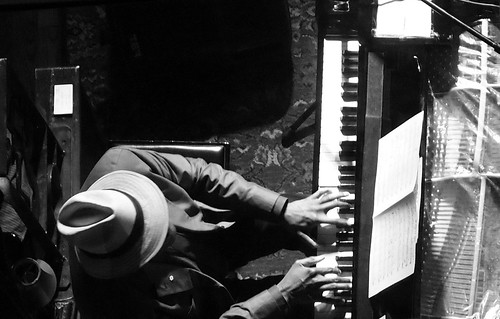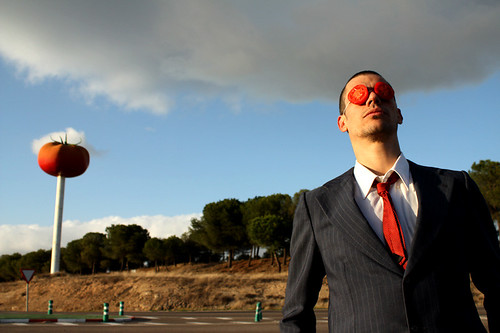
Podcast: Play in new window | Download (61.1MB) | Embed
Subscribe to Spark My Muse Apple Podcasts | Spotify | Email | TuneIn | RSS | Subscribe to Spark My Muse
Shownotes: PART I
A conversation (in 2 parts) with
the author of Vulnerable Communion: A Theology of Disability and Hospitality, by practical theologian Tom Reynolds
Bio:
Tom joined the Emmanuel College (part of the University of Toronto) faculty in 2007. He is committed to an interdisciplinary, practical, and relational vision of theology, his teaching and research address a range of topics related to constructive theology (particularly the doctrine of God and theological anthropology), theological method, intercultural and interfaith engagements, contextual theologies and globalization, philosophical theology, disability studies, and the thought and influence of Friedrich Schleiermacher.
His recent Articles
Email: tom.reynolds@utoronto.ca
MIN 4:00
Incorporating the theology of disability into his work training pastors at Emmanuel Seminary, because theology is personal, and not disconnected from the real world concerns of the church and people living their lives.
4:30
About his son Chris sparking his interest and work in the theology of disability.
5:30 Learning that disability isn’t a problem to figure out, but rather it’s about a person who I love and live with, and care with and for, which radically reoriented my perspective on theology.
5:50
Disability and God’s Providence
(Questioning does God “cause” disability as a curse or opportunity for healing…or a kind of moral lesson…)
6:30
His son exploded the theological categories (and assumptions) pertain to Providence…making everything confusing and needing to be re-thought.
7:00
What is abnormal? What is “faulty” humanity?
Amos Yong, Hans Reinders, John Swinton writing on the topic too.
8:15
Tom details the new book on the Theology of Care which builds on the first book.
8:40
Some churches stress Cure over Care in terms of disability.
8:50
(Lisa) My visit to a church where the leadership was interested in healing my son from his non normative experience of the world.
10:00
The range of responses churches have when encountering people with disabilities.
The church’s “urge to cure” is better than outright exclusion, which plenty of families have encountered.
11:00
It comes from the the idea of remaking and fixing someone in a way that is more comfortable for non disable people and normalcy (what they consider normal). Not helpful or Christian.
12:00
About the church that didn’t want his son as a disruption and a church that did receive them.
13:00
“How can we help you?” was water for his parched soul. How the church accepted and welcomed the uniqueness of his son.
14:15
Hospitality vs. a narrow view of what is preferred.
15:00
The messiness of various kinds of people, in general, means we have to expand our view of grace.
15:30
Who gets to be a full-fledge member of the church community?
and the “mascot syndrome” for those with disabilities.
16:30 – 17:50
Levels and types of responses:
• Tolerate disabled, but they do not get to be a true part of the church.
• “Inclusion” sometimes means means the the “outsiders” get invites to the inside group based on the good graces of the in group, but are still treated as problems to be solved, or people that are to receive the gestures of charity from others (people for whom things are “done for (them”)”. Doing for instead of “being with”.
18:00
What is access? In is not just accommodations (i.e. ramps and special bathrooms) and alterations but ongoing…
Faith communities may be not expecting and not ready to receive those with disabilities.
18:30
It’s not an issue about outsiders, because disability extend to a broad range of issues, both visible and not visible, including mental health challenges that are already there.
18:50
Thinking of the word “BELONGING”
as in “to be longed for when you aren’t there in the fullest sense.”
John Swinton and belonging
19:40
Jean Vanier “In giving and receiving do we really thrive as people”
20:30
Unconscious bias that includes “fear of the stranger” and “fear of the stranger within”.
21:00
We fear weakness and vulnerability.
21:30
Before “mainstream”…the stigma of “retard”…and fearing and disposing weakness.
22:20
Nathan means gift. (Lisa) I learned that I had to recognize weaknesses (shortcomings) in myself the I saw reflected in my son…and communities can do the same type of thing unconsciously.
23:00
“The encounter with disability punctures the illusions of what we think of as our own strengths.”
23:50
The journey with a child with disabilities is isolating.
25:30
Societal epidemic that fears being vulnerable or perceived as weak or unable to perform in ways that are considered valuable by society.
26:00
We have to see what are myths about autonomy, independence, and productivity where are assume we are self-reliant and these qualities are prized so highly. “Able-ism” (The idea that being able in body and mind is normal and most vital which serves as the lens by which we see and judge the world and others outside those parameters as faulty.)
27:00
Tom’s latest work called “A spirituality of attentiveness”. Christianity: St Paul’s strength in weakness serves as a prophetic witness against a society that prizes the strong as the main thing of value. 1 Corinthinians pretense of strength undercuts our ideas of grace)
29:20
We are all only temporarily-abled. (Lisa).
31:00
On hearing “You must be so blessed to have a disabled person as a teacher.” Is this sometimes a reframing of the situation that spins the situation to be more palatable? A glossing with spiritual truths and making it about spiritual growth.
31:20
Instead, Chris’s life seeks its own flourishes, and he may at times function as a teacher.
33:00
Thoughts on intellectual ability (or inability) and belief in terms of Salvation.
God’s works God’s own path in different ways and in different capacities with people. This undercuts my arrogance (as a theologian), so I don’t think I can so easily map it out definitively and universal for all people in all places.
34:00
His son’s atheism (who is the God he doesn’t believe in)…and how that challenges our presuppositions about God.
34:50
“It is in the kind of relationships of mutual belonging that the full image of God is borne out.”
35:30
(Lisa) To my son I said, “when you see someone who is loving you, you are seeing God.”
(Lisa) On how I changed from thinking “right belief” as the way to understand God was central. Our intellectualizing what God has done is not salvific.
38:00
Martin Luther’s theology of the Cross:
The pretense that we know exactly where God is and how God works. Where God is most hidden is where God is most vividly revealed in saving ways.
38:30
“Who I am to declare that God’s grace only works in some ways? and the God’s capacity and God’s own mystery is limited to what I would deem and my community would deem adequate.”
39:30
What the practical theology of disability tells us about Grace with God and relationships with others.
40:00
“The longer I live and work as a theologian the more I realize the limitations of theology and the true infinite mysteries of God.”
Jesus was disruptive to religious pretense and suppositions. “You say this..but I say this…”
Theodicy – The question of why does God allow suffering and how should we think about suffering.
How Tom, as a theologian, answers the question,
“Why would a sovereign God allow a person to be born disable and encounter such suffering?” (This is great!)
The best is yet to come! Come back for part II next week.
Will you help me meet my goal of raising $100.00 in August to keep Spark My Muse going? Use the Donate button on the left sidebar. Thank you for being a big ball of love!





